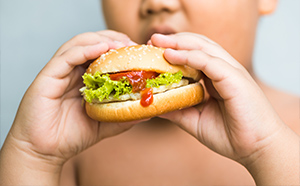Alcoholism
Alcoholism is the inability to control alcohol consumption due to a physical and emotional dependence. Regardless of the severe consequences that accompanies alcoholism, eliminating it is an extreme challenge.
For most adults, moderate alcohol use is probably not harmful. Alcoholism, or alcohol dependence, is a disease that causes
- Craving - a strong need to drink
- Loss of control - not being able to stop drinking once you've started
- Physical dependence - withdrawal symptoms
- Tolerance - the need to drink more alcohol to feel the same effect
With alcohol abuse, you are not physically dependent, but you still have a serious problem. The drinking may cause problems at home, work, or school. It may cause you to put yourself in dangerous situations, or lead to legal or social problems.
Another common problem is binge drinking. It is drinking about five or more drinks in two hours for men. For women, it is about four or more drinks in two hours.
Too much alcohol is dangerous. Heavy drinking can increase the risk of certain cancers. It can cause damage to the liver, brain, and other organs. Drinking during pregnancy can harm your baby. Alcohol also increases the risk of death from car crashes, injuries, homicide, and suicide.
You may have an AUD (alcohol use disorder) if you can answer yes to two or more of these questions:
In the past year, have you
- Ended up drinking more or for a longer time than you had planned to?
- Wanted to cut down or stop drinking, or tried to, but couldn't?
- Spent a lot of your time drinking, or recovering from drinking?
- Felt a strong need to drink?
- Found that drinking - or being sick from drinking - often interfered with your family life, job, or school?
- Kept drinking even though it was causing trouble with your family or friends?
- Given up or cut back on activities that you enjoyed just so you could drink?
- Gotten into dangerous situations while drinking or after drinking? Some examples are driving drunk and having unsafe sex.
- Kept drinking even though it was making you feel depressed or anxious? Or when it was adding to another health problem?
- Had to drink more and more to feel the effects of the alcohol?
- Had withdrawal symptoms when the alcohol was wearing off? They include trouble sleeping, shakiness, irritability, anxiety, depression, restlessness, nausea, and sweating.
In severe cases, you could have a fever, seizures, or hallucinations.
If you have any of these symptoms, your drinking may already be a cause for concern. The more symptoms you have, the more serious the problem is.
Alcohol problems come from drinking too much, too fast, or too often. People with alcohol dependence are addicted to alcohol, and they can’t control their drinking. When alcohol-dependent people try to stop drinking, they may feel anxious and irritable—so they may drink some more, and it becomes a vicious cycle.
“Addiction has 3 major problems: You lose your ability to feel good, you get more stressed, and you have a hard time making proper decisions,” says Dr. George Koob, director of NIH’s National Institute on Alcohol Abuse and Alcoholism. “That’s a recipe for disaster.”
Signs of an alcohol problem include drinking more, or more often, than you intended, or making unsuccessful attempts to cut back or quit. People with alcohol problems often have trouble functioning at work, home, or school.
“A good indicator is that something is out of whack. Is your personal life deteriorating because of your drinking? Are people starting to shun you? If you’re feeling generally miserable, that’s a warning sign,” Koob says. “You don’t have to hit bottom. You’ll save yourself a lot of damage socially, professionally, and probably in your own body if you attend to an alcohol problem a lot earlier.”
“People shouldn’t wait for a physical problem like liver disease,” says Dr. Lorenzo Leggio, an NIH researcher studying new alcoholism treatments. “People develop an alcohol disorder before liver problems get bad. The goal is to identify an alcohol disorder sooner. The sooner you act can help prevent medical consequences.”
Studies show that most people with an alcohol use disorder can benefit from some form of treatment. If you or someone you care about may have an alcohol problem, help is available. The first step is to talk to a primary care doctor. In some cases, a brief intervention, or an honest conversation about drinking habits and risks, is all the person needs. If the problem is more serious, the doctor can help create a treatment plan, prescribe medications, or refer the person to a specialist. In more severe cases, the doctor might recommend a treatment clinic or in-patient addiction center.
“Alcohol dependence is a complex, diverse disorder. There’s not one treatment that works for everybody,” says Dr. Raye Litten, an alcohol treatment and recovery expert at NIH. “If one treatment doesn’t work, you can try another one. Sometimes a combination of these will work.”
Practical tips on giving up alcohol
Firstly, if you think you have a serious drinking problem and are experiencing any of the associated symptoms of alcohol dependence, you should consult your doctor or another medical professional about it as soon as possible. There are also a number of national alcohol support services that you can go to for advice.
Make your intentions known
Tell your family and friends that you’re trying to stop drinking alcohol and explain why. This way, you can share your successes with them, and they’ll understand why you’ve started turning down drinks or trips to the pub.
Frequently reminding yourself and the people close to you why you want to stop drinking can help keep you on track, and may even encourage someone else to give up or cut down with you.
Avoid temptation
In the early stages, it’s a good idea to avoid situations where you may be tempted to drink. This could mean opting out of the weekly pub quiz for a while, or if you tend to drink when eating out, try going to restaurants that don’t sell alcohol or simply volunteering to drive. Similarly, try to identify the times when you would usually drink and fill the gap with something else. So if you would usually head to the pub after work on a Friday evening, you could organise to meet friends at the cinema, or if you’re giving up alcohol in pursuit of a new, healthier you, why not fill the gap with a weekly exercise class or a trip to the swimming pool to help you wind down?
Identifying your ‘triggers’ (times when you’re tempted to drink) is important, particularly if you’ve tried and struggled to stop drinking in the past. Try to identify why you were unsuccessful – did you still go to the pub most evenings? Did you explain your reasons for not drinking to your partner? Was alcohol still readily available at home?
Give up or gradually reduce your drinking?
If you want to stop drinking alcohol as part of a move towards a healthier lifestyle, cutting down on the amount of alcohol you drink as opposed to giving up alcohol completely can help bring lots of health benefits, and can be easier to stick to. Reducing the amount you drink can also be an effective stepping stone to giving up alcohol completely in the future.
Cutting down doesn’t have to be complicated. If you drink every night, start by designating a couple of days a week as alcohol-free days. This can soon become habit, the personal challenge helping remove the temptation and perhaps encouraging you to add more alcohol-free days. Official alcohol unit guidance is that it is safest for both and women to not regularly drink more than 14 units a week and not to ‘save up’ your units but spread them our evenly over the week.
Reward progress
It’s important that you acknowledge the fact that making changes to your lifestyle can be difficult and that you reward yourself with something if you are making progress. It's equally important not to be too hard on yourself if you slip up every once in a while.
An easy way to keep track of how you’re doing and keep your motivation up is to give yourself short-term goals. Perhaps you could aim firstly for an alcohol-free week, then an alcohol-free month, for example.
If you tend to drink in front of the TV after work, try replacing that glass of wine with something else you enjoy, or treat yourself to some new clothes or a day out with the money you’re saving on alcohol. The cost of alcohol mounts up with surprising speed – you could try putting aside the money you would normally spend on alcohol at home or while out, and spend it on another treat at the end of the week or the month.
Enjoy the benefits
Whether you’re cutting alcohol out of your life completely or cutting down gradually, you may notice a number of improvements to the way you look and feel. Among other things, you might find you have more energy, that you’re sleeping better, or that you’ve lost a bit of weight. In the long term you will also be helping to reduce your risk of developing alcohol-related cancer, alcohol-related liver disease or alcohol-related heart disease and could lower your blood pressure.
Potential alcohol withdrawal symptoms
Going ‘cold turkey’ or suddenly drinking no alcohol at all can cause serious alcohol withdrawal symptoms if you were drinking heavily before.
Dr Sarah Jarvis of Drinkaware’s Medical Advisory Panel points out that "psychological symptoms are very common, and not just if you're a really heavy drinker. You can have short-term problems even with relatively low levels of alcohol consumption if you've become used to drinking really regularly.” Psychological symptoms can include irritability, poor concentration, feeling shaky, feeling tired, difficulty sleeping or bad dreams.
Physical alcohol withdrawal symptoms including trembling hands, sweating, headache, nausea, vomiting, palpitations and lack of appetite are less common, but are often a sign that the sufferer was drinking at worrying levels. Severe physical side effects include convulsions, confusion, fever and even hallucinations. If you experience physical withdrawal symptoms of any kind, you should see your doctor as soon as possible.
Suggested Videos & Documenteries
Alcoholism - causes, symptoms, diagnosis, treatment, pathology
How I overcame alcoholism
Related links & sources

Obesity
Overweight and obesity are defined as abnormal or excessive fat accumulation that may impair health.

Unemployment
Employment is central in our lives. However the issue of unemployment is a major setback to the majority of the countries.

Climate Change and Destruction of Natural Resources
The Earth's climate has changed throughout history. What about now? You have the power, there are several things that you can do.

Large Scale Conflict and Wars
38.9 percent of those polled ranked the possibility of large-scale war as the most serious global issue.

Orphans
Not everyone is called to adopt, but everyone can do something. Here are four great ways to engage your family in showing hope!

Smoking Tobacco & Nicotine Addiction
Nearly 6 million people die of tobacco-related diseases each year, including more than 600,000 nonsmokers who are exposed to secondhand smoke. Smoking has become an extensive epidemic.

Water Crisis
All life on Earth needs water to exist, however fresh water consumption is increasing at an unsustainable rate causing irreversible damage. The fresh water shortages occurring can become globally catastrophic.

Sex/Human Trafficking
Many people would say slavery ended after the emancipation of the slaves in 1865, but human slavery still exists today in the form of human/sex trafficking.

Education Inequalities
A massive amount of people on this globe do not have resources that allow them access to education, and a majority of them are children in unprivileged societies.

Alcoholism
Alcoholism is the inability to control alcohol consumption due to a physical and emotional dependence. Regardless of the severe consequences that accompanies alcoholism, eliminating it is an extreme challenge.

Violence Against Women & Child Abuse
Violence against women and children is a serious public health concern, with costs at multiple levels of society.

Malnutrition & Vitamin Deficiencies
Malnutrition is estimated to contribute to more than one third of all child deaths, although it is rarely listed as the direct cause.
